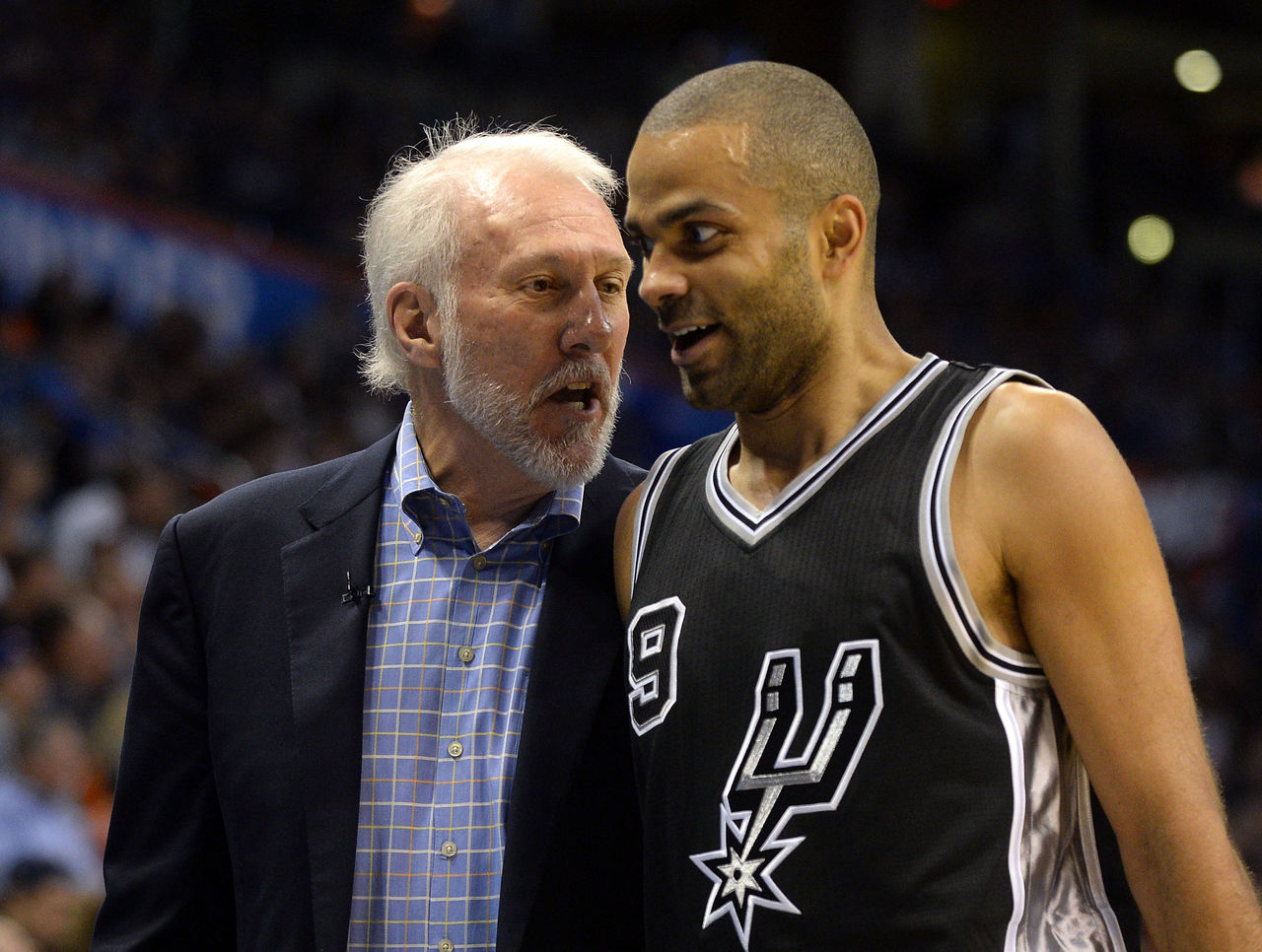Popovich deserves Coach of the Year for another masterful Spurs season
The San Antonio Spurs just had the best regular season in franchise history.
Think about that. The team that's amassed the best winning percentage of any in major north american pro sports the past two decades; the team that's won five titles and made six finals in the past 17 years, during which time they've never won fewer than 50 games; the team that's routinely held up as the gold standard for organizational process; the team for whom the regular season is supposed to be a trifle; the team whose most accomplished player is still playing impact minutes at the age of 40. That team just wrapped up the best season in franchise history. That team somehow found a way to get even better.
The Spurs went 67-15, with a plus-10.6 average point differential - the seventh-best mark in history. They won 40 games at home (tying the record), including their first 39 (setting a new record). They had the league's top defense and third-best offense. Their season has been completely overshadowed by the Golden State Warriors' 73-win campaign, but it's up there among the best the NBA has ever seen.
At the center of it all is a coach with the courage and conviction to zag while the rest of the league zigs. Scan the NBA, and you'll see a handful of teams doing their best to emulate Gregg Popovich's 2011-2015 Spurs. The 2015-16 Spurs aren't one of them.
Bucking the trend

At a time when the league is becoming increasingly perimeter-oriented and 3-ball obsessed, and when playing ultra-fast is in vogue, Popovich - who was ahead of the curve on the perimeter-passing and corner-three fads now becoming the norm in the league - swam against the current he himself helped set in motion.
The Spurs hooked the biggest fish in the free-agent pond this summer, but until the season started, questions persisted as to whether he was the right fit for their fluid, pass-happy, perpetual-motion machine. LaMarcus Aldridge had made his bones in Portland as a meticulous, probing, one-on-one scorer, and a killer mid-range jump-shooter.
But what's made the Spurs historically dominant during Popovich's mind-boggling 19-year tenure isn't their ability to perfect one particular style of play, it's their adaptability; their facility for shape-shifting to best suit their personnel. And so it was that the Spurs turned the page and started a new chapter, replete with entry feeds, post-ups, high-low action, slog-it-out possessions, and heaps of mid-range jumpers.
It suited Popovich just fine. Early in the season, the oft-ornery coach copped to detesting the 3-point shot.
"I'll never embrace it. I don't think it's basketball," he said. "I think it's kind of like a circus sort of thing. Why don't we have a 5-point shot? A 7-point shot?"
On a string
In conjunction with the rise of the 3-ball, mid-range jumpers have become stigmatized to the point that they're synonymous with death in the NBA. But Popovich's team shot more mid-range jumpers than every team but the New York Knicks (whose offense is a punchline), and still scored at a rate that was bettered by just two teams.
That's because the Spurs, more than any other team, move together and pass to each other on a string, in perfect synchronicity. At times you watch them and feel like they share one brain. And in a sense, they do. Popovich hasn't imprinted himself on the Spurs' culture, he is the Spurs' culture.
"Spurs" has basically become a verb in the NBA lexicon, signifying an act of selflessness, precision, intuition, and intelligence.
Spurs gonna Spurs pic.twitter.com/fLMnxde3sh
— CBS Sports (@CBSSports) December 24, 2015
At the defensive end, their unwavering discipline and attention to detail makes them a puzzle without a solution. They defend without fouling, don't allow second-chance opportunities, don't get scrambled in transition, and manage to take away both the paint and the 3-point line.
They lock down the middle of the floor, force action to the sideline and baseline, and run shooters off the arc. Their closeouts are furious. They make their opponents shoot almost as many mid-range jumpers as they themselves do, only with much less success.
There are a handful of coaches deserving of recognition for doing masterful jobs this season. But, with apologies to the Warriors' Steve Kerr, Hornets' Steve Clifford, Trail Blazers' Terry Stotts, Celtics' Brad Stevens, Grizzlies' Dave Joerger, Raptors' Dwane Casey, Pistons' Stan Van Gundy, Mavericks' Rick Carlisle, and Hawks' Mike Budenholzer, Pop lapped the field. Again.
HEADLINES
- Bickerstaff: Ref wasn't 'objective' in Pistons' loss to Mavs
- LeBron hails 'Luka magic' after Doncic drops 45: 'He's just so damn good'
- Giannis denies speaking with Bucks about future: 'I'm still locked in'
- Winning mindset: Knueppel drawing ROY buzz with 2-way play
- Luka's 45-point triple-double helps Lakers rally past Jazz